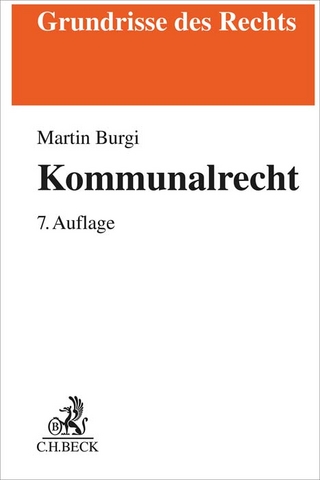
Modern Slavery in Global Context
Bristol University Press (Verlag)
978-1-5292-2471-9 (ISBN)
- Noch nicht erschienen (ca. Mai 2025)
- Versandkostenfrei
- Auch auf Rechnung
- Artikel merken
It illustrates how different disciplinary positions, methodologies and perspectives form and clash together through a kaleidoscopic view to contribute a unique insight into critical modern slavery studies. Providing a platform to critique the legal, ideological and political responses to the issue, experts interrogate the construct of modern slavery and the anti-trafficking discourse which have dominated contemporary responses to and understandings of exploitation.
Drawing on a range of global real-world examples, this is a vital contribution to the study of modern slavery.
Elizabeth A. Faulkner is Lecturer in Law at Keele University.
Foreword: Against ‘Newness’ - Joel Quirk
1 Introduction: The Interdisciplinary Kaleidoscope and Creation of Modern Slavery in Global Context - Elizabeth A. Faulkner
Introduction
Modern slavery in global context: overview
Modern slavery: rage against the machine
About the edited collection: the organizing logic
Conclusion: shifting the kaleidoscope
PART I Theoretical Perspectives
2 From Social to Legal: Shifting Approaches to Trafficking at the Turn of 20th-Century England - Laura Lammasniemi
Introduction
Section I: the shifting legal and social landscape of the mid-19th century
Section II: towards legal framework on anti- trafficking
Conclusion
3 The Coloniality of Modern Slavery in Latin America - Chris O’Connell
Introduction
Methodology: conducting fieldwork in Bolivia and Peru
Problematizing approaches to modern slavery
Coloniality of power and modern slavery
Decolonization and modern slavery in Bolivia
Conclusion
4 Constructing ‘Indigenous People’ Reproducing Coloniality’s Epistemic Violence: A Content Analysis of the Trafficking in Persons Reports - Avi Boukli, Georgios Papanicolaou and Eleni Dimou
Introduction
Coloniality and epistemic violence
Coloniality and human trafficking
Data and methods
Coloniality of knowledge in the TIPRs: constructing the ‘Indigenous victim’ of human trafficking
Conclusion
PART II Structural Issues in Modern Slavery and Human Trafficking Practice
5 The Ethics of Research into Human Trafficking Beyond ‘Do No Harm’: Developing a ‘Living’ Ethical Protocol - Patricia Hynes and Mike Dottridge
Introduction
Conceptual approaches: capturing the transnational and contextual nature of trafficking
Conclusion
6 Governing through Indicators: Structural Biases and Empirical Challenges in Indicator-Based Approaches to Anti-Trafficking Policy, Practice, and Research - Ieke de Vries and Ella Cockbain
Introduction
The aetiology of problem, risk, and performance indicators
Indicators as the vocabulary of victimization within human trafficking discourse
Empirical challenges in developing human trafficking indicators
Problem frames and empirical challenges in the use of risk factors: the case of commercial sexual exploitation and trafficking of children in the US
Implications for policy, interventions, and further research
Conclusion
7 The Criminal Investigation of Human Trafficking Crimes in the UK: Benefits and Challenges of Police Collaboration During Police Investigations - Laura Pajón
Introduction
Human trafficking: a complex crime
The benefits and challenges of police collaboration in human trafficking investigations
The practice of police collaboration to investigate human trafficking crimes
Conclusion
PART III Case Studies
8 Brexit-Precipitated or Free Movement-Facilitated? Labour Exploitation of EU Migrants in the UK - Samantha Currie
Introduction
Brexit: a facilitator of labour exploitation
Free movement as a facilitator of labour exploitation
The aggravating impact of restrictive immigration policy
Conclusion
9 The Modern Slavery Agenda in the UK: Labour Market Enforcement Perspectives on Law and Policy - Amy Weatherburn
Introduction
Tackling labour market non- compliance: law and policy responses
The paradox of a labour market enforcement perspective: the ‘hostile environment’ trumps labour market security
Conclusion
10 Insights from Uganda: Wartime Sexual Violence,
Knowledge Production, and Power - Allen Kiconco
Introduction
‘The field’: power and feminist methodology
Navigating risk, access, and collaboration
“I cannot tell you everything”: navigating ethics and in-depth interviews
Conclusion
11 Beyond Victim-Centric Research: Participatory Action Research in a Trafficking ‘Hotspot’ of Nepal - Ayushman Bhagat
Introduction: reimagining the political epistemology of victim-centric anti- trafficking research
Methodology, knowledge production, and unravelling power dynamics
Conclusion
12 Saviours or Disrupters? The Role of Non-State Actors in the Government-Centric Realm of Anti-Trafficking in Belize - Cherisse Francis
Introduction
The rise of NSAs
Belize: the good, the bad, and the ugly
Conclusion
| Erscheint lt. Verlag | 20.5.2025 |
|---|---|
| Zusatzinfo | 3 Tables, black and white; 3 Illustrations, black and white |
| Sprache | englisch |
| Maße | 156 x 234 mm |
| Themenwelt | Recht / Steuern ► EU / Internationales Recht |
| Recht / Steuern ► Öffentliches Recht ► Besonderes Verwaltungsrecht | |
| Recht / Steuern ► Strafrecht ► Kriminologie | |
| Sozialwissenschaften ► Soziologie | |
| ISBN-10 | 1-5292-2471-3 / 1529224713 |
| ISBN-13 | 978-1-5292-2471-9 / 9781529224719 |
| Zustand | Neuware |
| Informationen gemäß Produktsicherheitsverordnung (GPSR) | |
| Haben Sie eine Frage zum Produkt? |
aus dem Bereich


